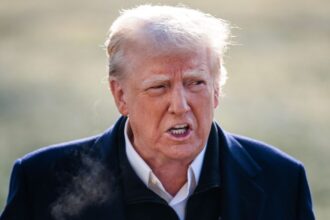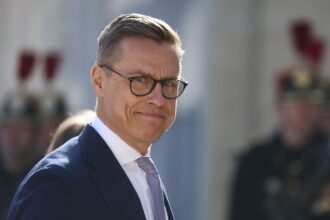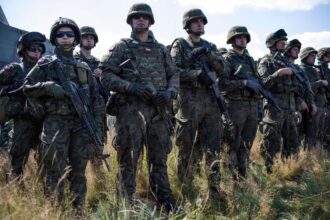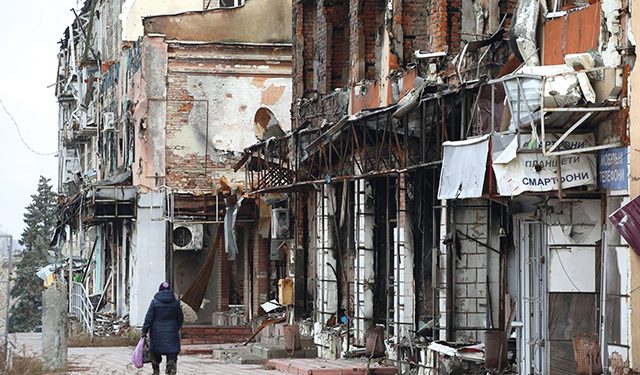Volodymyr Zelensky, Ukraine‘s president, said that on the first official day in winter, nearly 6 million people in the majority of Ukraine’s regions are without electricity.
Ukraine has accused the Kremlin reviving “genocidal tactics” of Josef Stalin, as Kyiv commemorated the Soviet-era famine which killed millions of Ukrainians during the winter of 1932-1933. The Holodomor commemoration day was held last weekend as Ukraine fought to repel Russian forces invading and dealt with sweeping blackouts that were caused by air strikes, which Kyiv claims are meant to break the fighting spirit of the Ukrainian people. Zelensky wrote in Telegram that “once they wanted to destroy [us] with hunger, and now with darkness (and) cold.” “We can’t be broken.”
On Wednesday, Ukraine’s state emergency services reported that nine people were killed in fires after they broke safety rules to try and heat their homes following Russian attacks on power plants.
“Only the last day, there were 131 fires across Ukraine. 106 of these were in the residential sector. The emergency services reported that nine people were killed and eight injured.
The latest developments in Russia’s invasion of Ukraine
Officials said that Russian shelling in Kherson, a southern Ukrainian city, killed 15 civilians Friday. Engineers were working across the country to restore heat, power and water to major cities. Galyna Lugava, a city official, said that 35 people, including a young child, were injured and several houses and high-rises were damaged. The Russian bombardment of Kherson was the deadliest in recent days.
The Kyiv Independent reported that Ihor Klymenko of Ukraine’s National Police Chief said 32 civilians were killed in Kherson after 9 November when Russian forces had to withdraw from a city they had occupied since 8 months. Since then, Russian troops have frequently shelled Kherson. According to a report from the Kherson Oblast Governor, Yaroslav Yaroslavyevych, the Russian military launched 17 attacks against the city on 24 November, killing seven and injuring 21 people.
Ingrida Simionyte, Mateusz Murawiecki, and Denys Schmyhal, the prime ministers of Lithuania and Poland, respectively, met on Saturday in Kyiv to discuss and to reiterate their commitment to working together “in order to counter Russia’s armed aggressiveness.”
The member states of Lublin Triangle issued a joint statement condemning “systemic war crime committed by Russia’s troops in regions of Ukraine including deliberate, indiscriminate and disproportionate attacks on civilians and civilian infrastructure”.
The statement also condemned the forced deportation of Ukrainians, continued attack around Ukrainian nuclear sites, and “the organisation by Russia of illegal so called referendums in areas within internationally recognized borders of Ukraine”.
On Twitter, Ingrida Siminyte, the Lithuanian Prime Minister, said that the meeting reconfirmed a “rules-based world order.”
The United Kingdom imposed 22 new sanctions this week on Russian officials accused by the British of leading the mobilization and recruitment of “criminal militias”.
The new sanctions targeted Russia’s Deputy Premier Denis Manturov who London said was responsible for overseeing Russia’s weapons industry, and equipping newly mobilized forces, as well 10 governors and region heads in Dagestan Ingushetia Kalmykia where “a significant” number of conscripts were drawn.
The Russian Central Bank announced on January 1 that it will be cancelling several support measures for Russian bankers that have been introduced since the imposition by Western sanctions following Moscow’s invasion of Ukraine in February.
In a press release, the regulator announced that it would extend certain measures, such as the reserve requirements. However, it will also force banks to disclose their financial statements again and will not relax the rules on open foreign currency positions.
Olaf Scholz, German Chancellor, said at the Berlin Security Conference that Russia can no longer win the Ukraine war on the battlefield.
He said that although Germany took Russia’s nucleonic rhetoric seriously, they would not be intimidated by it.
Sources: The Guardian (BBC), Al Jazeera
***
The Holodomor (also known as the Terror (or Great) Famine) was a manmade famine that occurred in Soviet Ukraine between 1932 and 1933. It killed millions of Ukrainians. The Holodomor is part of a wider Soviet famine that affected major grain-producing regions of the Soviet Union from 1932-1933.
Scholars agree that the famine resulted from man’s actions, but whether the Holodomor is a genocide is still disputed. Some historians believe that Joseph Stalin planned and intensified the famine to eliminate an independence movement in Ukraine. Some historians believe that the famine was caused by rapid Soviet industrialization and collectivization.
Ukraine was one the largest grain producing states in the USSR, and was subjected to unreasonable grain quotas compared to the other parts of the country. Ukraine was particularly hard hit by the famine. Scholars and government officials have given wildly varying estimates of the death count. In 2003, 25 countries signed a joint statement to the United Nations declaring that 7-10 millions died. However, the latest scholarship estimates that 3.5 to 5 millions victims. The impact of the famine on Ukraine is still felt today.
Source: Wikipedia
By Ana Dumbadze
Read More @ georgiatoday.ge




